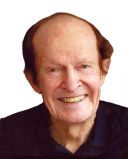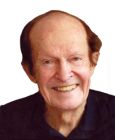Cognition
There Is Nothing Either Good or Bad But Thinking Makes It So
The case against moralism
Posted January 8, 2015 Reviewed by Davia Sills
In an earlier blog, I proposed that we don’t need to be limited by what’s right and wrong, but to consider if the long-term consequences of an action are in our self-interest. This position, on the face of it, understandably is unsettling for many people. But if we care to look closer, I believe a good case can be made against moralism.
According to Princeton Professor Bernard Williams, the fundamental question of ethics was the Socratic question, “How should one live?” Yet we largely ignore this question and instead ask ourselves, “What is our duty?”
Some of us believe our duty is to maximize the greatest good for the greatest number. Others believe that we should conform to those rules that reasonable persons endorse. Yet, others hold that we should behave in ways that cultivate the virtues and character traits that will enhance our personal development.
The problem with these points of view is that they lean heavily on what others think we should do. When we cede our sense of duty to others, without considering the circumstances, we can be at a serious disadvantage. Yet, we can always console ourselves, “I may have lost to that deceitful so-and-so, but at least I came out ahead by holding to a higher ethical standard.”
By the time we reach college, however, if not in high school, it’s all about winning, whatever the cost. Those who believe, “It’s not whether you win or lose; it’s how you play the game,” if one can be found, are looked upon as losers.
Whether it’s in sports, politics, or finance, the most cunning and nefarious are the winners. We admire and celebrate the winners, not the losers.
So, what’s it all about? Is our duty simply a matter of choosing the right moral standard and holding to it, regardless of whether we're being taken advantage of by others? Do we discard our standards and “do what we have to do,” when it’s necessary to win? Or do we retreat into our solitude and refuse to play the game?
I believe we can be the best we can be by not just understanding others’ points of view, but by changing the way we live and empathizing with those who hold disparate beliefs and actions. We don’t have to sit back and excuse others for unlawful conduct, but we will be ahead in the long run with a “live and let live” approach to life.
Charlie was one of the angriest young men I have ever met. He was referred by his psychiatrist, who was retiring and thought that I, as a former sociologist, might be able to compromise Charlie’s distorted view of the world so that he could continue his college education.
Charlie stood 6’ 2” tall, powerfully built, and appeared forthright. He lived with his mother, who was a cleaning lady with her own clientele. When asked if he played college sports, he said no, but he played linebacker on his high-school football team.
I asked Charlie if he could tell me a little bit about his troubles in college; that I understood he was at risk of being dismissed. While I listened, he went into a diatribe about the way Blacks were being favored for scholarships over whites, how Hispanics were taking our jobs and should be carted back across the border, and how Jews ruled the economy.
“So, what do you propose to do about it?” I asked.
He said he was trying to recruit fellow students to join a group to take the country back for Americans. He had been summoned to the provost’s office and told to “knock it off,” or he would be dismissed for advocating racial hatred.
I told Charlie that I certainly didn’t want to interfere with his hatred, that everyone had a right to their hatred. Since the beginning of history, tribal anger and hatred toward others were what held societies together. So too, with individuals. Almost everyone carries a chip on their shoulder. But few of us know what we’re really angry about.
“What do you mean?" Charlie excitedly asked. “I just told you.”
OK, I replied, suppose all those who you just listed moved across the border to Canada or Mexico, and the borders were effectively sealed. Do you think you would be free from your hate and anger? Charlie thought a moment and said he didn’t know.
I continued. Suppose everyone who remained held your beliefs? Do you suppose that you would be free of jealousy if your girlfriend married someone else? Free of anger if you didn’t get a promotion you deserved, or if an undeserving co-worker became your boss?
Better yet, suppose that you married your girlfriend and got the promotion you deserved, do you suppose you would be free from your anger?
Charlie shot back, “You have to have anger to compete in this world!”
“You mean we have to be angry at someone to win?” I replied. Charlie nodded.
“And the object of your anger, then, is the other person or the other team?” Charlie again nodded.
“So, once we all hold to the same values and beliefs, we still would need our anger to win and compete with others?" I asked. Charlie nodded.
I continued, “And others would need their anger to win and compete against us?”
“Right,” Charlie replied.
I pressed on, “So how does that differ from competing with Blacks, Hispanics, and Jews? Do they have an unfair advantage by not holding your belief structure? Do they play dirty and cheat? Or do they just win some and lose some like the rest of us?”
Charlie said that they played dirty and cheated.
I reminded him of his high-school football days and asked, “Did you ever get together with your teammates before the big game with your crosstown rivals and decide to clip their star runningback or rough-up their star quarterback?”
Charlie slumped forward and slowly uttered, “Yeah, doc, I guess you’re right.”
I suggested that Charlie give up his quest to convert others to his way of social change; that with his energy and persuasive powers, he could make much more of a contribution to society as a social worker than as an advocate for hate.
This article was co-published with PsychResilience.com




